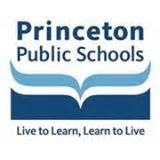By Philip Sean Curran
Staff Writer
Retiring Princeton Public Schools Board of Education President Patrick Sullivan said on Dec. 18 that he thought the school district “probably” will have another bond referendum in 2019, in comments coming one week after voters approved a $26.9 million ballot question.
Sullivan, leaving after two terms on the board, used part of his final meeting to reflect upon and offer some advice to officials as they move ahead without him.
“We kind of learned on the fly, I must confess, in 2018 how to do this and we made some mistakes,” he said. “We ultimately got to a great result, I think. But doing it again, I think it’s just about engaging with everybody to make sure we all agree.”
This year, officials had looked at a much broader, more expensive ballot referendum in excess of $100 million. In the face of community opposition, they eventually settled on a smaller plan, for $26.9 million, to pay for facilities projects, that voters approved on Dec. 11.
“It was a successful result,” Sullivan said. “It’s step one of a longer process. But we’ve all lived it on this board and in this community. We’ll keep living it and, hopefully, do it in a respectful and constructive way if we move forward.”
The district will upgrade heating, ventilation and air conditioning systems in its schools, improve security, add four classrooms at Princeton High School and renovate the high school guidance area, among other facilities improvements.
Superintendent of Schools Stephen C. Cochrane said the projects the referendum will pay for “will enhance the safety, security and health of our buildings for students and staff.”
Work will take place over the next two summers, district administrators have said.
“How we break it down into what happens this summer and what happens next summer is something we have to work out with the district,” said Scott Downie, the district’s chief architect, during the meeting.
District administrators have said they would consider another ballot question next fall, but they have not released dollar figures or the scope of the projects that might be involved.
Sullivan later acknowledged the work of Cochrane, who attended nearly 50 meetings related to the referendum. Yet he said the schools chief was not “treated respectfully 100 percent of the time.”
“But he seems to have a thick skin and a sunny disposition,” Sullivan said.
“What a difference a week makes,” Cochrane said.
Cochrane thanked the community, “those who voted for the bond referendum and those who voted against it.”
Board member Dafna Kendal, the chairwoman of the facilities committee, said opponents of the referendum “made several good points and it did influence my thinking, at least.”
“I think Princeton is a town that values both education and civic engagement,” Cochrane said. “The referendum is the result of respectful discourse and reasonable compromise and I truly believe that, as a community, we established a path forward that does address our most immediate needs for our students, but also honors the economic diversity of our town.”
District administrators have said the tax increase from the referendum, starting in 2020, would mean an extra $56.84 on the average assessed home of $837,074.
In the short term, the district plans to have a bond sale on Jan. 9, Cochrane said.
Earlier in the meeting, school officials and others paid tribute to Sullivan and Kendal, who lost her re-election bid in November. Board member Betsy Baglio was Kendal’s running mate in the contest and finished 91 votes ahead of her to win one of the seats up for grabs.
“It is quite an understatement to say I am deeply disappointed to not serve alongside you,” said Baglio, whose voice quavered with emotion.
Kendal broke up the emotional moment with a touch of humor.
“I told her if she didn’t keep it together,” Kendal said, “she’s going to have to leave.”
Later in the meeting, Sullivan’s wife, Martha Easton, spoke of how her husband feels about his colleagues.
“Pat respects all of you on the school board so much,” she said. “He respects people in this community so much, because, in the end, even if you have different ideas of accomplishing it, we all want the best for our children.”

